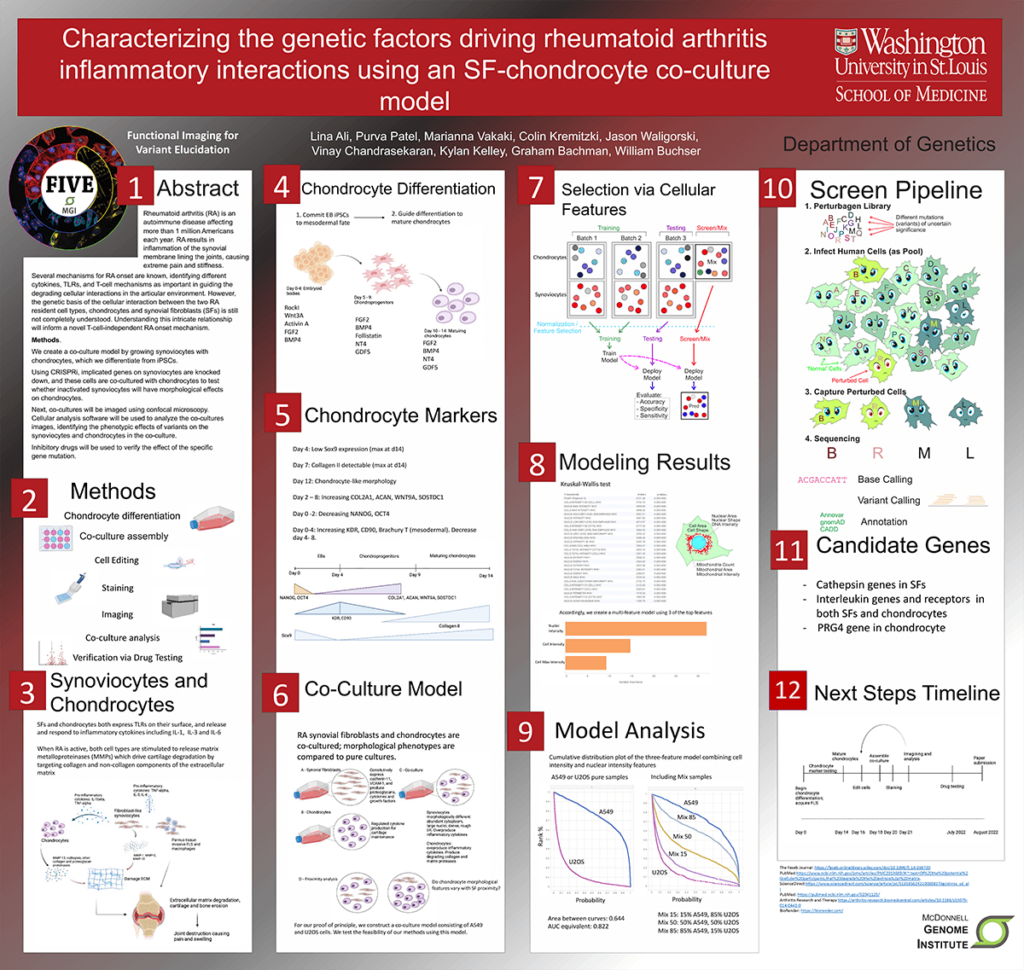Introduction: Rheumatoid arthritis (RA) is an autoimmune joint-debilitating disease caused by genetic and environmental factors and affects more than 1 million Americans today. Studies have characterized several mechanisms for RA onset, identifying cytokines like IL-1, IL-2, and IL-6, as well as different receptors, as important in guiding the degrading cellular interactions in the articular microenvironment. Additionally, chondrocytes and synovial fibroblasts (SFs) have been gaining more interest for their unique morphologies and interactions with each other, however, there is yet to be a study on the genetic basis of these cell-cell interactions. This project aims to create a two-cell model of chondrocytes and RA SFs in an inflamed articular environment, as well as to examine how genetic perturbations affect SF-chondrocyte cellular interactions.
Methods: CRISPRi, will be used to knock down implicated genes on SFs in a co-culture. This is followed by confocal microscopy and cellular image analysis to determine the functional effect of genes of interest on cell-cell interactions that may affect RA articular inflammation.
Results: We anticipate to identify a number of genetic mutations which we observe to have a significant effect on the cellular interaction of SFs with chondrocytes in our co-cultures. These mutations will be examined in the presence of inhibitory drugs to verify their stimulatory inflammatory effect in an articular RA microenvironment.
Impact: Identifying the genes whose mutations we observe and verify have significant effects on the SF-chondrocyte intercellular interaction is important in guiding more targeted RA research and therapy.
Organization – Washington University in St. Louis
Ali L, Patel P, Vakaki M, Kremitzki C, Waligorski J, Chadrasekaran V, Kelley K, Bachman G, Buchser W
